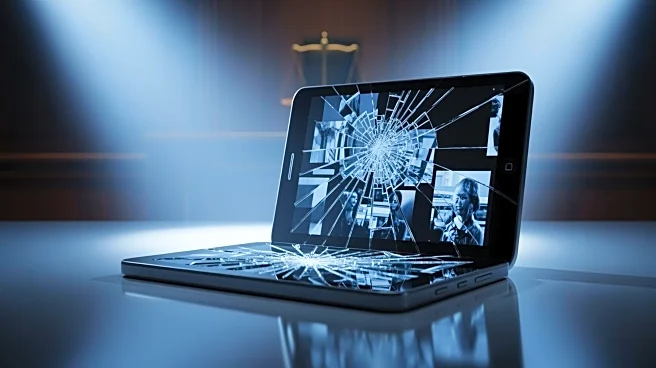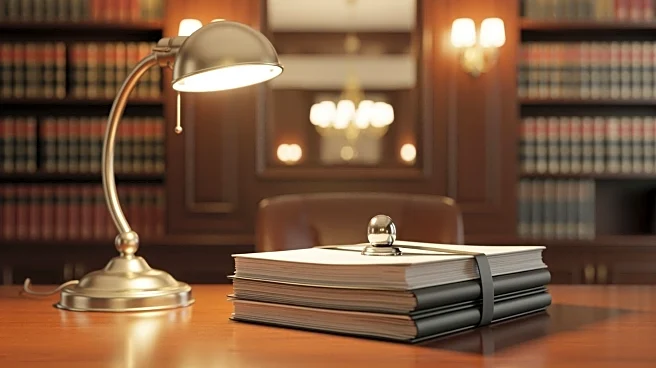What's Happening?
A trial has commenced in Paris involving ten individuals accused of cyberbullying Brigitte Macron, the wife of French President Emmanuel Macron. The defendants, aged between 41 and 60, allegedly spread malicious comments online, claiming that Brigitte Macron is a man.
These comments also included derogatory remarks about her age difference with her husband, labeling it as 'paedophilia.' Among the accused are a medium, an advertising executive, an elected official, a teacher, and a computer scientist. The trial follows a defamation suit filed by the Macrons in July against U.S. conservative influencer Candace Owens, who has made similar claims. The Macrons have been targets of conspiracy theories suggesting Brigitte was born as Jean-Michel Trogneux, her brother's name, and later transitioned. The trial is expected to last two days, with a verdict to be issued at a later date.
Why It's Important?
This trial highlights the growing issue of cyberbullying and the spread of misinformation online, particularly targeting public figures. The case underscores the challenges faced by individuals in the public eye in combating false narratives and defamatory content on social media platforms. The involvement of a U.S. influencer in the defamation suit also points to the international dimension of online harassment and the complexities of jurisdiction in such cases. The outcome of this trial could set a precedent for how similar cases are handled in the future, potentially influencing public policy and legal frameworks regarding online conduct and defamation.
What's Next?
The trial's outcome could lead to further legal actions against those spreading false information online. If the defendants are found guilty, it may deter similar cyberbullying incidents and encourage stricter regulations on social media platforms. The Macrons' defamation suit against Candace Owens in the U.S. could also progress, potentially resulting in substantial damages if successful. This case may prompt discussions among policymakers and social media companies about enhancing measures to prevent and address online harassment and misinformation.
Beyond the Headlines
The trial raises ethical questions about freedom of speech versus the right to privacy and protection from defamation. It also highlights the cultural impact of conspiracy theories and their ability to influence public perception. The case may lead to increased scrutiny of social media platforms and their role in facilitating the spread of harmful content. Long-term, this could result in more robust policies and technologies aimed at identifying and mitigating cyberbullying and misinformation.















